Angie Christensen (advocate of holistic healing, and founder of Simply Divine Eating) hosted me at a special event where I discussed the effects of thoughts on circumstances. I talk about the outcome that even I never expected from my daughter’s science experiment (of sending positive vs. negative energy to basil plants). I thought the plants would respond according to the energy they received, but they didn’t—until something accidental and unexpected happened on week 3.
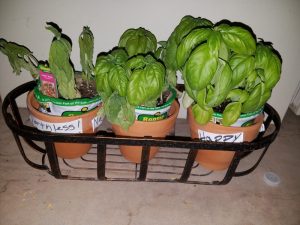
I also tell an intimate story about my life as a new mother and the crazy things we did during those early years in our hunger for knowledge. I discuss the difference between the competitive and creative plane, and how higher awareness leads to increased faith.
You may be exercising your faith by praying, but are you praying with faith?
TRANSCRIPT:
Welcome to the Rare Faith Podcast, where the solution to every problem is only an idea away and where the same activity with just a little more awareness always yields better results. Award-winning best-selling author Leslie Householder brings some of her best information to this inspiring series of life-changing episodes that you won’t want to miss. Show notes for this episode can be found at: ararekindoffaith.com
Melanie: I want to tell you why I love Leslie and her stuff. One, when I read her books I was like, “Oh look, it’s another version of me!” Because she’s done the same thing, she’s looked through all this stuff and she’s found the core principles, and she teaches principles that help people and so, I was like, “oh look, her brain works like me” which is fun. The other thing I love about Leslie is when you get into a lot of these principles that she teaches and there’s a lot of people out there teaching it. There’s a lot of it that gets very greedy and it gets very offensive, to me, and Leslie is incredibly balanced in that way. She teaches these principles that apply to money but she’s quick to acknowledge that money is not really the point. It’s a means to an end, it’s a means to helping us achieve what God needs us to achieve, but seeking it for its own objective is not the point. I was having a conversation with her once, about some things I was frustrated with, that I’ve been taught other places, and, you probably don’t even remember saying this, but I was talking to her, you know, about some of these people teaching that everyone should be a millionaire and, you know and whatever, and some of my frustrations with that, and her response to me was, “if you need a million dollars to accomplish your life mission, you better figure out how to make it happen. And if that’s not your life’s mission, why waste the energy.” And I thought, “There is a balanced perspective. And so I love what she teaches because it can help you financially or it can help you relationship or help you grow and develop and whatever. But it’s not money worship like a lot of these things get, and so it feels good to me. That’s one of the reasons I love Leslie and what she teaches and how she goes about it and that she’s a great example, she’s a very balanced place to go, I feel, in this world, for these principles.
Leslie: I have to say that, back before we had learned these things, I remember, we’d get another financial blow of some kind and I’d be like, “what am I supposed to think about this? What am I supposed to think about this?” Why would I even ask that question? Deep down, I knew that if I knew how to think about this that everything in the end would work out okay. I knew that. And I was looking for the principle.
What’s the core, foundational principle about all these problems that I can hang on to no matter what’s going on around me? No matter what problems show up, what’s that thing I can hang on to? Now, the Sunday School answer is Jesus Christ, but there’s something more I need to know and I knew I needed to know it. And one of the reasons Bob Proctor got our attention is because he started his presentation with this: he said, let me find it, he said, “the Mormon people have a verse in their scripture that says, ‘there is a law irrevocably decreed in heaven before the foundations of this world upon which all blessings are predicated and when we obtain any blessing from God it is by obedience to that law upon which it is predicated.’” And I’m thinking, “What is the law?” And what I realized is that I had been trying to apply the principle of, “be good and you’ll prosper” when those two things are not connected. There are laws that govern prosperity, there are laws that govern health, there are laws that govern relationships, and if we want a certain blessing, as one of the General Authorities recently said, “You better figure out which law is connected to that blessing and live it.” I learned too that the things I have discovered, that I teach now, I myself have to go back to my own books and read things and remember, because it doesn’t come super natural to me to apply the principles that I’m going to share with you. But, I know they are true and I know that they’re powerful. So, tonight, Melanie also said something, see if you remember what it was, where she said, “how long it takes to heal depends on…” what? What was her hand gesture? Yeah, she pointed to her head. That’s what we’re going to talk about. I’m going to talk about our thinking, and our thoughts and the effect that they have on our results.
Now, where I’m coming from, the reason I do what I do, the reason I do what I do is because, years ago when my husband I first got married I had, I had dreams and life figured out on what we were gonna do together in our goals and what I didn’t expect was how difficult it would be to do everything that we’d planned, primarily because I wanted to stay home with the children. And we started a family right away, and affording just ourselves, let alone adding more children to that, we went on faith that we’d figure it out. We’d find a way; and had decided that once my first baby came, I’d stay home. And so, I operated on faith. I had been raised to have faith, I had exercised faith, I’d seen the power of faith work, and so I thought, “Well, you know, I feel like for us it’s important for me to be stay at home mom,” and my husband agreed. This was one of the things that we had agreed upon before marrying and so we were on the same page. And a year after we were married first baby has come along and, “oh, look, the baby’s here. I guess I’ll quit.” and we weren’t financially prepared to do that, but we were gonna go on faith. And a year later we were deep in debt, my husband had, my husband lost his job and I was forced to go back to work. I remember working temporary jobs and whatnot where I’d drop off my child, which later became children, at daycare in the morning when it was dark outside (this was in Orem, Utah) and then, at night when it was dark again I’d go pick him up. And, I don’t know, maybe for moms, especially those of you who are stay-at-home moms, can imagine how hard that was for someone who that was so important to be with them through the day. And it just tore me up, it tore me up. And we had some friends who had encouraged us to attend seminars with them, once a month, because they were positive thinking, this business. And I think they could probably see that the way I was coping with my challenges, and I struggled with depression besides, was not improving upon our situation, if anything, it was making things worse. Long story short, seven years of going to seminars and, counted it up once it was about 100 seminars, at least, and sometimes going to great lengths to attend these seminars because I could feel that what I was learning was good. I could feel that what I was learning could solve our problems if I could just figure it out. If I could just, have the mental discipline to not react when there was disappointment but be proactive or these different things that you learn. And, seven years of this and I was so tired and so discouraged. I’d get excited at these events and then two weeks later nothing had changed and I’d be back down again. And I’m thinking, “look at all this money we’re spending, just to ride this rollercoaster.” And, on one occasion I remember, we, there was an event back east that we thought, “You know what? We really need to go.” we could feel in our gut, we needed to be there. Didn’t have the money to go, and so we scrounged up what we could, I’m sure we put some on a credit card. Got ourselves to… Oh, actually, we found airplane tickets that, did you know that the more places you visit on the way to your destination the cheaper the fare is. You start early in the morning and make your way across country like this. We finally got there, went to go rent the rental car, because I was going to be our hotel room for the weekend. We had a can of corn in our backpack. And got to the desk and they wouldn’t let us rent the car because we didn’t have any more room left on our credit card. I mean, this is how hungry we were for knowledge that we believed would help change the flow of money into our life, the opportunities that we believe are out there. You know, part of our problem is, we go to these seminars and they’d give us these bullet lists of, “do this, do this, do this, do this, and you’ll have that, because that’s what we did.” Someone else would say, “do this, do this, do this, and that’s what we did and now we got this, and so you will too.”
And so we would do those things. We would do exactly what they’d say, as best as we could, and, worked for everybody else and not for us. And I thought, “What is wrong with me? What is wrong with us?” And so we’re pointing fingers, there’s a little bit of, you know, relationship challenges going on, too. And finally, seven years of this and I was done. I was depressed, I’m sure clinically, but another seminar’s coming along and I just thought, “Honey I can’t do it anymore. I can’t justify the expense anymore.” And, he said, “That’s fine.” I couldn’t let go of it. Something went: “you’ve got to be there.” “I know, but I’ve been doing that for seven years and nothing’s changed.” And finally, I’m like, “alright fine, I’ll go to this last one. After that, I’m done. After that, if something hasn’t significantly shifted for us, I’m done. You can keep going if you want, but I’m done.” And luckily, we went to that one and, (here’s the long version, it’s not that much longer, but) we went to this event and Bob Proctor was the guest speaker. How many of you have ever heard Bob Proctor teach? It’s very powerful. He was a speaker and, honestly, I was distracted. I was kind of tuned out. He wasn’t very flashy. You know, you get these speakers like: Les Brown or Zig Ziglar, and they’re up there and they’re doing their thing. And Bob Proctor is very quiet, to the point and, he didn’t have my attention. I’m talking with my neighbor through most of the weekend and at the end, this room was probably 6,000 people, it was a bit bigger arena, and actually, the Ogden, the Ogden Dee Events Center, the Dee Events Center is where it was. And, at the end everybody was in a buzz about what they had just learned from Bob. And I’d never seen this kind of reaction from that big of an audience before. And it wasn’t a big cheering kind of reaction. I’d seen that the whole time. This one was a, “Oh, My Heck!” It was profound! They were Speechless. And then I’m like, “What’d I miss? Oh, man, this was the one, and I missed it!” And, the organization who had brought him in never brought in the same person twice, but the impact that he had had on the audience was so profound and so permanent, I was still hearing about it weeks and months later. “Oh, my goodness! What did I miss?”
They invited him to come back, not just for his two hour spiel that he’d had before, but, “here Bob, you’ve got the whole weekend.” Three days with that, with this group. And I was there, I’m like, “I am I’m gonna be in the front row. I’m going to have my pen and paper I am NOT gonna miss a thing.” We sat on the edge of our chairs and we listened as hard as we’d ever listened to anything. About halfway through, it hit us, and we saw what everybody had seen before. And I looked at my husband and he looked at me, and our mouths were open, we’re like, “That’s all it is? That’s all it is?” And in three months we tripled our income. And so, the information that I now share is because I didn’t ever really want a career, you know that, I wasn’t looking for one, but the change had been so profound, so dramatic, like Angie discovering these principles of food, how food is supposed to be and what it can do. Could you not share what you’ve learned? Could you just say, “great, it helped me, I’m just gonna go on with my life?”
Angie: I’ve tried.
Leslie: You’ve tried? [Laughs]
Angie: I really want to go back to being a mom. I’ve tried, but…
Leslie: Yeah, I feel ya. I know, I know. And so, there’s probably a lot of you in here have had experiences that have been so profound that you’re like, “I can’t not.” Raise your hand if you feel that way about something. So you get it, you get it.
Six months later he put out an invitation to his mailing list, which we were now on, that said: “have you ever thought about teaching what you’ve learned?” And I’m like, “[gasp] that’s what we’re gonna do!”
I remember being 12 and thinking, “One day I wanna be a speaker!” Because I had been affected by a speaker at one of the BYU camps that I attended, you know. Or, a lot of speakers actually. I just thought, “man what better job could there be in the world than to change lives?” I thought, I didn’t really want a job or a career or anything like that, but if I was gonna do anything that’s what I want to do. What would I talk about? I don’t know, but this message comes along and he said, “Who wants to help me teach this?” And so, I signed up. It was a big training on how to be one of his facilitators for his programs. And that cost a small fortune to invest in that training and that certification to do that. But by that time we had that much saved in the bank. I was thinking, “Isn’t that interesting? How did he know how much we had in the bank?” It’s the first time we’ve been able to do something like this on a cash basis, to that degree. And so I went, started teaching seminars.
But, by this time I had five children, one on the way, my husband was commuting two and a half hours to and from work, we were living in a two-bedroom house. We saw and we felt the change, but the outward appearances of our life quite haven’t caught up. So, in order to not feel guilty about not sharing what I learned, I wrote the Jackrabbit factor. And that’s where that book came from.
But before that book, I actually wrote Hidden Treasures, which was created about two years before as a series of articles that was written for a friend back in Georgia, who had a blog. And that’s another long story I won’t get into.
Angie: Did you write that for Marnie?
Leslie: Who knows Marnie Pehrson? Marnie Pehrson from Georgia?
Okay, you’re gonna get the long story and we’ll just cut short as needed. It’s fine.
At the same time I was learning these principles, and tell me if you relate to this, those of you who have a message now, there was this part of my life that was imploding and falling apart and trying to distract me from moving forward with what I knew I can help people with. You know I’m talking about? This over here was so ugly. I was trying to figure out how to forgive somebody for something that had happened. And I had done everything I could to just let go. Couldn’t get rid of it, couldn’t shake it off. I talked everybody’s ear off who would listen to me, you know, and just couldn’t find that peace of mind. And so, at the time, I was afraid of the internet. I’d heard too many bad things about it.
And so, I had exhausted all my other resources for helping me. And so I thought, “I’ll go to the Internet.” And so I braced myself, and I dared Google for the first time, probably. And I typed in, (“Let’s see, how could I type this in so I’ll get safe responses back?”), and so I typed in: “Christian forgiveness.” Because I thought, “at least nothing scary will come up, with that, hopefully.” And her, one of her sites was at the top of the list. At the time it was called: shelovesgod.com. And I looked at it and I’m like: “Oh, there’s a Greg Olson painting. Oh, there’s this, oh, there’s that.” and at the bottom it was made by CES consultants. And I thought, “Church Educational System, awesome!” It’s not. What does that stand for? Does anybody know? I don’t remember, but I thought, “Church Educational System” and Greg Olson was there. So, I’m like, “I’m safe. I can explore this website without any fear.”
And, I got on her mailing list. At one point, she sent out an article that was on forgiveness. I’m like, “Oh, great!” So, I’m reading this. I’m like, “yeah, I know that. I know, I know, I know, I know, I know. I already know all this, why can’t I just live it? Why can’t I shake this?” And so, I thought, “well I’m sure she’s got a huge following, but I’ll try.” And I replied, and I said, “Thanks for your article. I’m still struggling with this. Wondered if I could bend your ear, you know, get your input on something.” And she wrote back. And I’m like, “oh!” It was kind of spooky. This is my first experience reaching out to somebody in virtual space, right? And she wrote back, and she’s like, “sure, what’s up?” And I told her, and she wrote back. She says, “Well that is a doozy.” And, she really didn’t have any insight. And she says, “You could probably guess that the reason I wrote that article is because I’ve been struggling to forgive someone myself.” I went, “Pfft, never crossed my mind. I’m so self-absorbed it never dawned on me that she wasn’t just the expert on that.”
And I said, “Well, what’s up?” And she says, “Well, we’ve been trying to get out of debt, and we’ve finally gotten to this point and then my husband just went and racked up all our credit cards. And I’m really struggling with that.” And I’m like, “Money? I can help you with that!”
So, we started talking back and forth about these principles. And I end up mailing her stuff that I was teaching. You know, with Bob Proctor. And, pretty soon her website was goin’ from 2,000 a month, to 4,000, to 8,000 the next month, and it was just growing. And, she’s like, “my word, this is so powerful!” She says, “You’ve got to write some articles for my readers.” I’m like, “How do you do that? What’s that?” So, once a week for about eight weeks, I wrote an article on each of the principles. And later that became the Hidden Treasures book, which is the other one next to Jackrabbit Factor.
That’s a free download, by the way. The Jackrabbit Factor is a free download at jackrabbitfactor.com. And the message is so Important, I wanted it to help anyone in the world, and so Jackrabbit Factor’s kind of like a primer: a lot more generic, in an allegory form, it’s a story, it’s a fun read. And I thought, “If they read this and they like it, then they’ll be okay with Hidden Treasures, no matter what their background is.” And frankly I’ve had people that were Buddhist and Jewish and different faiths tell me how much they love Hidden Treasures, which, I’m like, “That’s what I was after.” I wanted it to be something that could benefit anyone.
All right, we’re gonna jump right into this. So, really what I wanted to do was talk to you and help you be conscious, more conscious of how your thoughts really do affect the world around you and your own body. My work has been mostly kind of in the context of money problems, which could be applicable here if you’re worried about the budget of eating healthier food. And the principles themselves are applicable to your health and relationships and anything else. So if I talk a lot about money it’s not because my favorite subject it’s just that’s where I, and why I, learned the principles in the first place.
About two weeks ago, two or three weeks ago, my daughter, who is 12, had a science project at school. And she had heard about a girl somewhere who had done the experiment where you have your plants, and you love on one of them and then you give all kinds of toxic energy to the other one and see how they grow. And so, we did this with basil. And, you can’t see the labels, but this is the beginning point. This is the one over here that says, she’s got labels on it, that say, “happy, beautiful…” This one had nothing. This is our control. And this one over here had, “ugly, nasty…” Just whatever negative words she could think of on the pot. And then, every day, or as often she could remember, she would go and give love and positive energy to the happy pot and then give angry, ugly energy to this pot. And I tried to help her, because I wanted this to work. I wanted to have some real evidence that this principle is true.
At first, we went for about two or three weeks on this project. And after about one week, what do you think it looked like? Anybody guess? [Group voices discussing]
Female Voice 1: Well the one was probably a beautiful plant, and the other shriveled up and died.
Leslie: Okay, what do you guys think? Anything else?
Female Voice 2: I bet it doesn’t look much different.
Leslie: This is pretty much how it looked. I’m like, “we gotta think more negative.”
[Laughter]
So, I would kind of, when she was at school, I tried to go and be all nasty at this plant. And deep down, I felt so guilty. I just had a really hard time being negative to this plant. And so, I’m like, “I think I might be messing it up by apologizing while I’m…” [Laughter] I didn’t know. I didn’t know. So, I asked her later. I said, “Bethany, I’m really kind of worried. Because I feel so guilty, and I think it can feel that I’m sorry, and that might not be doing the experiment right.” And she says. “Well, if you feel sorry or apologetic, just give that to this one over here, you know, when you’re feeling it. So go on, and then, ‘oh, I’m so sorry’ over here.” I’m like, “Okay, I can try that.”
Anyway, after about another week, what do you think it look like? About like that. [Laughter] And I’m like, “Ohhh, what’s gonna happen?”
Female Voice: Is there something about basil that’s resilient or something?
Leslie: I don’t know, I don’t know. I was getting a little worried because this project was coming up and what’s she gonna put on the poster if there’s nothing there? “Well, found out it’s not true, you know?” You can’t, that’s unacceptable.
But one day, and we started putting it outside where it would get sunshine, and they were all growing really well, and I couldn’t see any change. But, one day, we forgot to water it, in Arizona. And I came back and looked at it and they were all, “pffbbt.” I’m like, “Oh no! Oh no!” So I hurried up and watered them, really gave them a good saturation. And did that for a little while. And they bounced back. They bounced back like this. Which was very interesting to me. It was very interesting to me because I thought, “Sometimes what we think and the energy that we entertain may not have immediate visible effects.” But what was it that triggered the effect? A trauma, a stress.
And I had not expected that kind of result. I’m like, “Oh, this is even better than I planned!” It’s not just a matter of happy growth and shriveling. It’s after trauma. It was obvious which one was strong enough to handle the trauma. Isn’t that interesting? It was very interesting.
So, I was reviewing some of the things that were most profound to me, originally, when we were learning from Bob Proctor. And one of the things that changed my perception on how to do well with money, how to let it flow to your life more, was the comparison between the competitive and the creative plane. And we made pies the other day. And so, if you think of a pie, if you’re operating on a competitive plane and there’s eight pieces of pie, and yours is this one, if you want more where does the rest come from? From somebody else’s pie. And that’s how most of the world operates in business. They operate on a competitive plane. If you want that job you’ve got to out beat somebody else. If you want that market share you have to take it from someone else. This is, “it’s a dog-eat-dog, cutthroat…” And if you’re not a real competitive person, which I’m not, you feel like, “Man, I’m not sure it’s worth it to really try to make enough money to live and support a family. I don’t know.”
But, what Bob Proctor taught us is that there is a creative plane. And so, if you were to look at the same pie and you have your slice, if you want more, you create more on the outer rim. You just make your pie bigger out this way. And that creates a larger diameter of the whole pie and because nature abhors a vacuum everybody gets more. How does that work? How does that happen? I have an example.
And Angie just did this; you have an idea of service you can provide, a retreat, in my case it was a seminar. So I had this idea, “I’m going to put on a seminar.” I prepare the materials. I go to the copy center. I purchase materials from the copy center and get them ready for the participants. I use my gas in the car to go to the hotel. I hire the caterer to you know get the food ready. I hired a babysitter to watch the kids
While I turn on the seminar. The people coming paid me to receive the information. And who benefited from that event? The babysitter, the copier, the gas station owner, the hotel, the caterer, everybody’s pie got bigger because I had an idea.
It’s just a little shift in thinking. You don’t compete with anyone else for what is available to you. Which is a principle of nature. Nature’s abundant, true? And talk about, in nature, one Apple has the potential to become what? Orchards, for generations.
Nature is abundant. So, if we’re not experiencing abundance in our own life, there are some things that we can shift about the way we think that help us live in harmony with it. Which is easier than we think, because we’re moving from a competitive plane to a creative plane.
When we went home from that event we didn’t change much of what we were doing, but, we did what we were doing with higher awareness. Which is so exciting! It is so exciting because you’re not coming home to work harder. You’re not coming home to work faster or better or smarter. You’re doing the same task with a higher awareness. And you get better results. Is that powerful? It’s powerful. Oh, it’s powerful! I think about one of my favorite examples of somebody who has, for example, read the Jackrabbit Factor and applied what he learned, there’s a man named Ben Southall. Back in
2008, I believe it was, he heard about this world’s best job that was taking place down in Australia. Did anybody hear about that? They kind of turned it into a reality show contest. But the world’s best job in Australia was to be the island caretaker for the Great Barrier Reef tourism department. Which means you live on this Paradise Island for six months, take in all the tourist attractions, blog about it for six figures. So, go scuba diving, go parasailing, go cruising, do whatever they have to offer. Just blog about it and we’ll pay you six figures. World’s best job. Guess how many people applied for that job?
Class member: Tons.
Leslie: Throw a number out.
Class member 1: 30,000.
Leslie: 30,000?
Class member 2: 36,000.
Leslie: 36,000 people? 34. It was 34,000 people applied for that job, worldwide. And Ben Southall won that job. He was from England. And I found out about this because he was on Canadian national news, talking about his victory, and he and his girlfriend were talking about how the Jackrabbit Factor helped them get that Job. And I’m like, “Thank you! Thank you.” That’s why I’m in China now, because somebody saw that thing. He just had a higher awareness.
So, if you’re worried about your employment and you want the job where there’s ten candidates, awesome! What if you’re in business and you’re trying to figure out how to increase your market share? No problem. It’s like, you can do it anything that you need to do with this higher awareness. And really what it boils down to, that I’m talking to this audience is, it’s faith.
Okay, I thought I had faith before. I thought I had faith before, but my prayers kind of looked like this: “Oh Heavenly Father, please help us, we’re in such huge trouble. Please help us find this money before the end of the month or this big huge disaster is going to happen.” And I’m thinking in my mind. I’m picturing the disaster that’s gonna happen at the end of the month if that money doesn’t show up. I’m exercising faith by praying, but I’m not praying with faith. What does that look like?
What does it look like to pray with faith? This is what it looks like: “Heavenly Father, thank you for this challenge. I do not know why it’s good for me, but I know it is. I don’t know why I need to experience this, but I’m glad I am, because it’s gonna feel so good when I’m not anymore.” and I look forward to that day and I’m picturing that day when the problem is solved. I’m imagining myself in that day. I’m imagining myself feeling grateful that he helped me. I’m picturing myself, even saying that prayer, thank you. Thank you for your help. You did it. And I’m living that ahead.
And then when I ask, and he’s like, “You did it right.” and he can open up the doors and let it flow. It’s that simple. Now, the problem comes and we’re like, “Okay, I prayed that way, I wonder if it worked, I wonder if it worked.” And one of the laws, there’s seven laws and a bonus law that we talk about in Hidden Treasures, we’re not gonna have time to talk about all of them, but one of them is the law of perpetual transmutation. And the law of perpetual transmutation says that: everything, every circumstance, every physical thing, every idea, every anything you can think of, is either moving into form or it’s moving out of form. It’s not stationary, it’s not stagnant. Even a rock outside is not staying the same. The elements are having an effect on it and over time it will be different.
And the law of perpetual transmutation also says that: as you imagine the thing that you need and as you imagine yourself with it, and I’m not talking about seeing yourself on a TV screen having it, I’m talking about surround sound, you’re in it. It’s part of your experience, it’s a 3D imagining with the senses. Because the more you can bring your senses into that imagination, the more you’re going to tune yourself in to the thought frequency and the broadcast of ideas that help you solve the problem. That’s the law of vibration. That’s a deep one we’re not probably going to go that deep today. But the law of perpetual transmutation, this is what changed for me.
You remember when I said I’d go to these seminars and I’d get a taste so I could see and feel the excitement of how life was gonna change for us. And two weeks later it hadn’t happened, so I’m discouraged. As long as I saw it and as long as I believed it was happening, that we were moving in that direction, everything I needed, everything that needed to occur, all of the resources, all of the conversations, anything that had to happen were congregating, were being orchestrated to be there for me. And we would meet in the middle. And as long as I believed we were getting closer and closer and closer it was coming closer and closer and closer, someone across town was having the conversation that was going to open up an opportunity that that would be made aware of to this person who knows this person who knows my husband. Those things are happening out there somewhere. As long as I’m believing in them, it’s coming.
And when I worry or doubt it’s perpetually transmuting the other way. And just being consciously aware of that helped me hold on to belief longer, by choice. I’m going to choose to believe, even if there is no evidence. I’m going to choose to believe that God has a plan prepared for us to accomplish all things that he’s asked us to do: get out of debt; save for a rainy day; to help your neighbor; be a good steward of what you have.
All of these things cost money and it’s hard when you can barely keep yourself afloat. And where we were coming from, I was eating out of trash cans where we were janitors. Stephen Covey’s trash. Not bad. [Laughter] Actually no, because he never had food in his trash, but his workers did in the other room. True story. True story.
That’s where we were coming from. I was in that place of worry and fret and frustration. And, as much as God wanted to bless us with abundance, I was not living by the laws. I was not living the cornerstones of financial abundance, if you want to call them that. And when I realized, “Oh my gosh, we’re in this mess because of me?” At first it was very depressing, and then it was very empowering. And we’re human, and I still struggle with those ebbs and flows, but what I’ve learned, dependably, is if things are starting to look tight, I recognize it that fast and I choose to be grateful for this, this place of uncertainty. Because it’s always super, super exciting to see how the Lord is going to make it work. And I’ve been practicing that for years and it has never failed. Never failed.
And I’m telling you, there have been some scary, scary times. Like, “I don’t know how we’re gonna pull this off. I don’t know how we’re gonna pull that off.”
So perpetual transmutation is one of my favorites. It is just knowing that as I choose to believe that what I need is on its way. You practice that, you test it, you search the Scriptures for evidence of that promise. It’s true.
James Allen wrote a book called, As a Man Thinketh, which is super powerful. Spencer W. Kimball quotes it in his book, the Miracle of Forgiveness. It is about 150 [120] years old. And, he’s a man from England. He says, “Law, not confusion, is the dominating principle in the universe. This being so, man has but to right himself to find that the universe is right. And during the process of putting himself right, he will find that as he alters his thoughts towards things and other people, things and other people will alter towards him.” absolutely true. “So long as you hold the thought in your mind, it is, by law, beginning to be drawn to you. When you let go of the idea, it’s drawn away from you. You never saw evidence of it, so you had no idea that what you desired was being affected by your thoughts.” I, uh, I want to leave you with that much to ponder.
There is so much. I could talk for three weeks, it’s nonstop, about all of this, and I would love to, but… There is a story that, I was on my way to the temple and I was kind of pondering these principles, and I got a picture in my head of an experience that was kind of analogous. And it was, it struck me so much I had to pull over and just write it down. And then it just kept coming. How many of you had that experience?
And so, it’s a story that I have since added to Hidden Treasures. Some, like our older versions, doesn’t have it in there but I’ve added it. While I read it to you, if you’re not already on my newsletter and you want to get pointed to some more free information about how these things work, there’s a video. I’ve got a full-length seminar on my website that’s like, 80 minutes, 70 minutes long, that goes into the one thing. It’s called, The Visual Aid That Changed Everything. I’m going to show you what Bob Proctor showed us at that event that helped us change our income that fast. It was just a diagram that brought it all together. I also have the Hidden Treasures CD set. It’s a three CD set that goes through all of the laws of the Hidden Treasures audiobook.
But, here is the story I want to leave you with:
“A little acorn who wants to become all that its blueprint promises it can be. It truly is meant to become a grand and mighty oak. But, for now, it’s only a simple nut dangling by a stem. It hangs from the parent tree and stretches high longing to see the ground views and sweep the vast sky with broad branches. It wants to experience the fluttering of leaves and the swaying of limbs. But, alas, it can barely feel the breeze, slowed by the shelter of its protecting parent.
Finally, the parent responds, “Yes, little seed, I have great plans for you. You will scrape the sky and sway in the wind, and the view will be glorious. You’ll provide a home for many creatures, giving shelter and food. Your friends will be many, your influence will be vast, and you will be great and happy.” The little acorns heart swells with excitement as it stretches its rigid shell upward to receive its promised reward. But, instead of enjoying the exhilaration of greatness, it’s shaken from the tree and takes a long, hard fall, landing with nothing more than a slight thud. In fact, there’s no apparent compassion or understanding, since its terrible fall seems to go unnoticed. Its very world seems to have crashed down, and yet, time marches on unaffected for everything else around it. The tiny acorn soon finds itself trampled upon, with dirt kicked rudely upon it.
Eventually, it’s completely buried, in the dark, and alone. “Have you forgotten me?” He cries, but there is no answer, no explanation, no reprieve. Instead of rescue, the rain begins to pour and at once the buried seed believes it just may drown as well. It tries to throw its weight one way then the other to force its way out of the ground, or to find its way back to the tree, but nothing changes. it seems trapped with no hope of escaping its doom. Weary of the fight, it surrenders to its fate, with a sigh, and the elements nearby take notice of its calmed demeanor and begin to respond to its mere presence there. In fact, as it abandons the futile struggle, it begins to notice a subtle change, taking place within itself. As it continues in calmness it realizes that it already has all it needs, right there in its immediate environment. No, it hasn’t perished from being cut off from its parent, as it feared it might. Though the fall was frightening and terrible, there it remains as alive and as well as before.
No, the seed has not perished, rather it has sprouted new parts of itself from within that it didn’t even know it could sprout. And the little seed has begun to experience the joy that always accompanies growth and soul expansion. Though it still cannot see the grand views and sweep the vast sky with broad branches, it feels good enough just to grow. After a time of loneliness and fear, soon the seedling has broken through the crust of Earth and can finally see the goal again. Though it has never appeared to be so far away as it is now. However, in truth it has never been closer. Be patient, little seed, you were created for greatness, allow yourself time to develop roots and keep reaching for the Sun. trust God and success is inevitable. All you need to accomplish the goal will be yours, in the right time. Remember, peace, be still.”
This concludes today’s episode of the Rare Faith podcast. You’ve been listening to Leslie Householder, author of the Jackrabbit Factor, Portal to Genius, and Hidden Treasures: Heaven’s Astonishing Help with Your Money Matters. All three books can be downloaded, free, at ararekindoffaith.com
So tell your friends, and join Leslie again next time as she goes even deeper into the principles that will help you change your life.
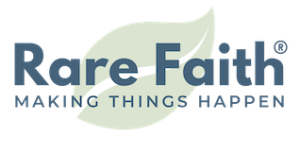




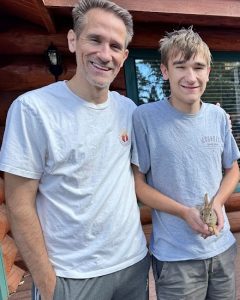








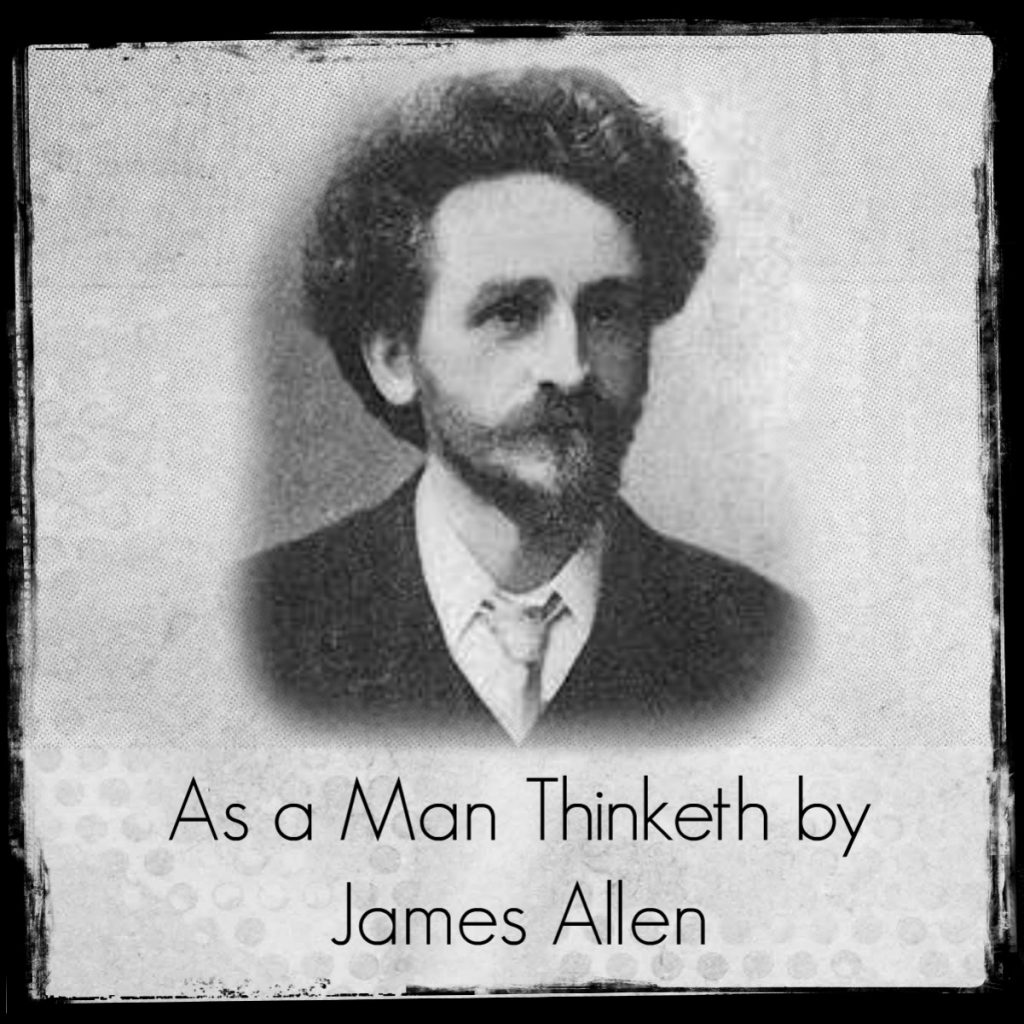


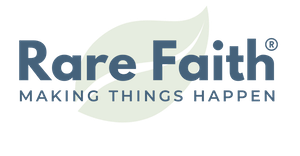
Recent Comments